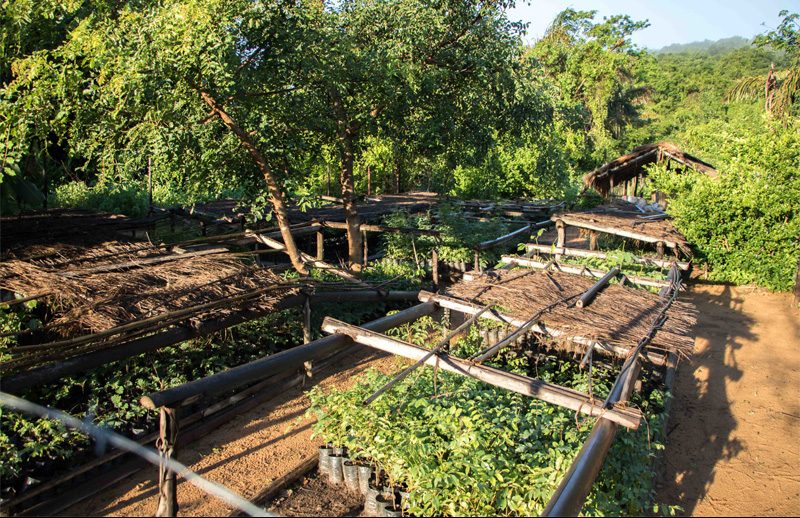
Sustainable DevelopmentNature Based Solutions At Ankarafantsika
The concept is bearing fruit: creating regular income-generating activities for the protection of flora and fauna by resorting to local human resources. An alternative that can be effective if the needs of the communities are well identified.
The case of Maevatanimbary, Andranohobaka and Ambarindahy, villages bordering Ankarafantsika Park in the Boeny region, is a good illustration of this initiative. A Planet Madagascar project, supported by the Tany Meva Foundation through the Critical Ecosystem Partnership Fund (CEPF) is being implemented in these three villages. As part of this project, Planet Madagascar is offering a series of activities focused on the preservation of Ankarafantsika Park for neighboring communities. A concrete example of a nature-based solution.
“We have identified a site which is home to lemurs and which is threatened by bush fires and the pressure from the activities of the local population”, explains Mamy Razafitsalama, In-country director of Planet Madagascar. The high endemicity of the fauna and flora in this part of Ankarafantsika Park justifies the efforts made for its preservation. The project, focused on two essential points, fits into the themes of the Tany Meva Foundation: protecting and sustainably managing ecosystems to meet societal challenges in an efficient and adaptive manner.
From start to finish, the project tries to make an improvement in the daily life of the community. The establishment of the 16.46 km firewall around the area to be protected was a one-off source of income for the populations of the three villages. The establishment and organization of regular surveillance patrols from the three localities also constitutes stable remuneration for the villagers.
In parallel with the fire management systems, the Planet Madagascar association has initiated two income-generating activity programs. The first is to distribute young lemon trees to the “Tontolo Maitso” women’s cooperative. Five families per village each received twenty lemon plants. Nearly 300 young plants were thus given to the members of this cooperative. The second program concerns beekeeping. Beehives will be distributed to village associations after the beekeeping training. Five other families from each village will receive ten beehives each.
Ultimately, Planet Madagascar will provide the communities with a business plan which will determine the stages in the professionalization of these two sectors. But for now, the results are already noticeable: no outbreak of fires has been recorded since the establishment of firewalls and patrols. The pressure on the exploitation of forest resources is also decreasing.

